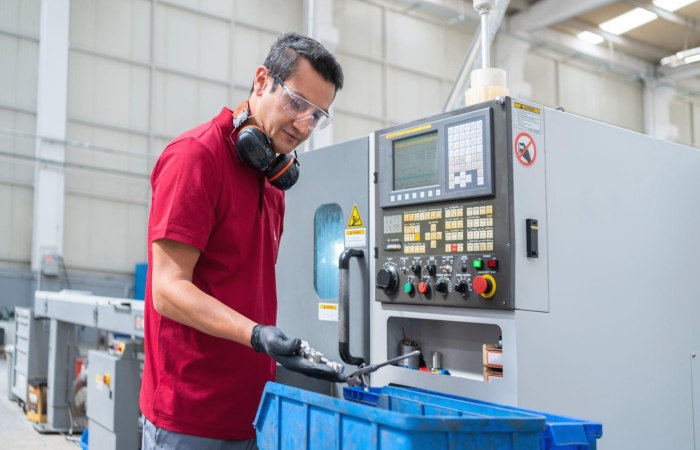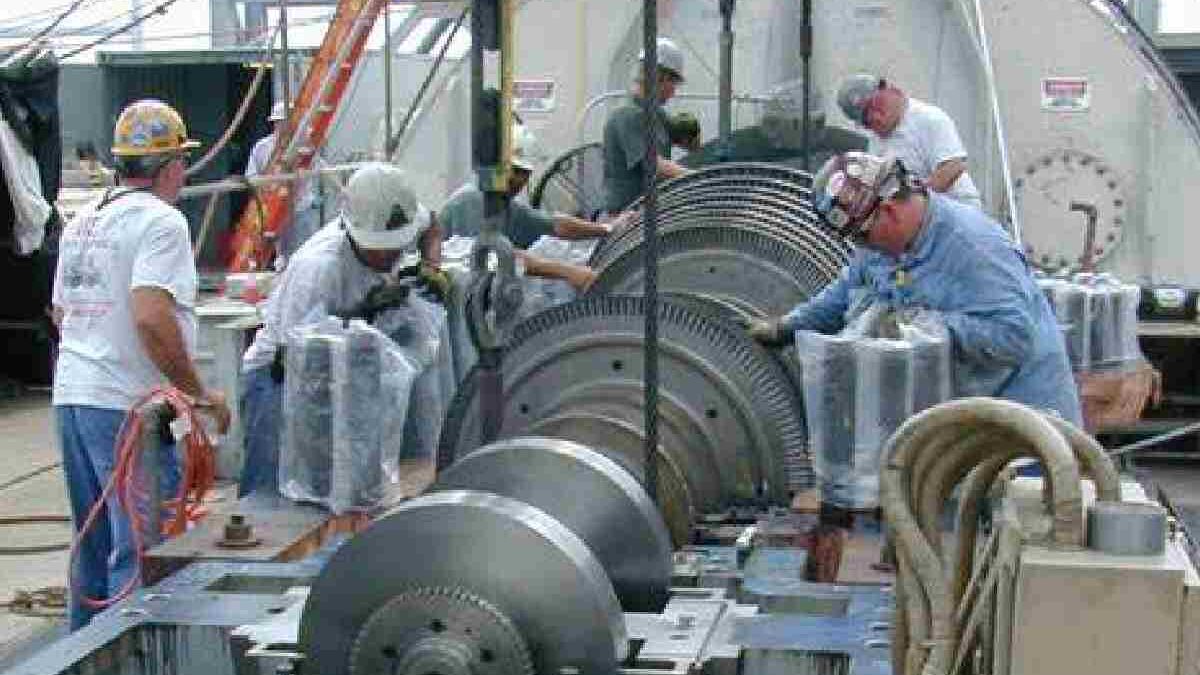
The industrial machinery/components industry encompasses various products, from heavy equipment and machinery to electronic components and systems. This industry is essential to the manufacturing sector and is vital in keeping the global economy running. As a result, this industry has many high-paying jobs, ranging from engineering and design to management and sales. This response will explore some of the best-paying jobs in industrial machinery/components and the skills and qualifications required for each position.
Table of Contents
Top 5 Best Paying Jobs In Industrial Machinery/Components

Here are five high-paying jobs in the industrial machinery and components industry:
- Industrial Machinery Mechanics: Industrial machinery mechanics install, maintain, and repair heavy-duty machinery used in manufacturing and other industries. The average annual wage for industrial machinery mechanics was $54,920 in May 2021.
- Industrial Engineers: Industrial engineers work to improve manufacturing processes and systems by analyzing data and implementing efficient solutions. The medium annual wage for industrial engineers was $88,950 in May 2021.
- Mechanical Engineers: Engineers design, develop, and test mechanical devices and systems. The medium annual wage for mechanical engineers was $90,160 in May 2021, according to the BLS.
- Electrical and Electronics Engineers: Electrical and electronics engineers design and develop electrical and electronic equipment, including industrial machinery and components. According to the BLS, the average yearly wage for electrical and electronics engineers was $103,390 in May 2021.
- Materials Engineers: Materials engineers research, design, and develop materials used in manufacturing, including industrial machinery and components. The average annual wage for resources engineers was $98,230.
Benefits Of Best Paying Jobs In Industrial Machinery/Components
There are several benefits to having one of the best-paying jobs in the industrial machinery/components industry. Here are a few:
- High earning potential: One of the most apparent benefits of having one of the best-paying jobs in this industry is the potential for high earnings. However these jobs typically require specialized skills and knowledge, and employers are willing to pay top dollar to attract and retain the best talent.
- Job security: The industrial machinery/components industry is a vital part of the economy, and there will always be a need for trained workers to design, manufacture, and maintain the machinery and components that keep businesses running. It means that jobs in this industry tend to be more stable and secure than those in other industries that are more susceptible to economic fluctuations. Opportunities for growth and advancement: The best-paying jobs in this industry often come with opportunities for development and improvement. And also you gain experience and expertise, you may be able to move into higher-level positions with more responsibility and higher salaries.
- Variety of work: Jobs in the industrial machinery/components industry can be very diverse, with opportunities to work in design, engineering, manufacturing, sales, marketing, and more. And also you can select a career path that bring into line with your comforts and strengths and continue learning and growing.
- Positive impact: Finally, many people find that working in the industrial machinery/components industry gives them a intelligence of purpose and fulfillment as they contribute to creating products and systems. And also that improve people’s lives and make businesses more efficient and productive.
Requirements To Get Best Paying Jobs In Industrial Machinery/Components

If you’re interested in working with big machines that help make things like cars, food, or even toys, the industrial machinery and components industry might be a cool career path! These jobs can pay well, but you need certain skills and education to get them. Here’s a simple guide for 9th graders to understand what it takes to land these awesome jobs.
Education and Experience
To get the best jobs working with industrial machines, you usually need a college degree in something like mechanical engineering or electrical engineering. These are fields where you learn how machines work and how to build them. Think of it like learning the science behind your favorite video game gadgets!
Even though college is a few years away, you can start preparing now. Taking math, science, and technology classes in high school is a great first step. Also, getting experience through summer jobs, internships, or even school projects where you build or fix things can make you stand out later.
Technical Skills
These jobs often involve using computers to design or control machines. You might need to learn how to use special software, like computer-aided design (CAD), which is like a digital drawing tool for creating machine parts. Some jobs also involve coding, kind of like programming a robot or a video game. If you like tinkering with computers or building things, these skills will be super helpful!
Knowing the Rules
Working with big machines means you have to follow important safety rules to keep everyone safe. For example, there are guidelines from organizations like OSHA (which makes sure workplaces are safe) and ISO (which sets standards for how things are made). Learning about these rules is like learning the instructions for a game—you need to know them to play it right.
Managing Projects
Some of the best jobs involve leading a team to build or fix machines. This means you need to plan, organize, and make sure everything gets done on time. It’s like being the leader of a group project at school, where you make sure everyone does their part and the project is finished by the due date.
Communication Skills
You’ll work with other people, like teammates, clients, or suppliers, so being able to talk and listen well is important. Imagine explaining how a machine works to someone who doesn’t know much about it—you need to be clear and friendly. Writing reports or emails clearly is also a big part of these jobs.
Keep Learning and Be Flexible
The world of machines is always changing with new technology. To stay good at your job, you need to keep learning about new tools, machines, and ideas. It’s like updating your phone or learning new moves in a video game to stay competitive. Being open to change will help you succeed.
Certifications
Getting extra certificates can make you look even better to employers. For example, becoming a Certified Manufacturing Engineer is like earning a badge that shows you’re really good at working with machines. These certificates take time and study, but they can help you get the best jobs.
Why These Jobs Are Awesome
Jobs in industrial machinery pay well because they’re important and require special skills. You could work on machines that make cars, food, or even medical equipment! Starting now by focusing on math, science, and hands-on projects can help you get ready for these exciting careers.
Conclusion
The industrial machinery and components industry offers great jobs that pay well and let you work with cool technology. By studying hard, learning technical skills, and being open to new ideas, you can set yourself up for success in this field. Start exploring now, and you could be building the machines of the future!

